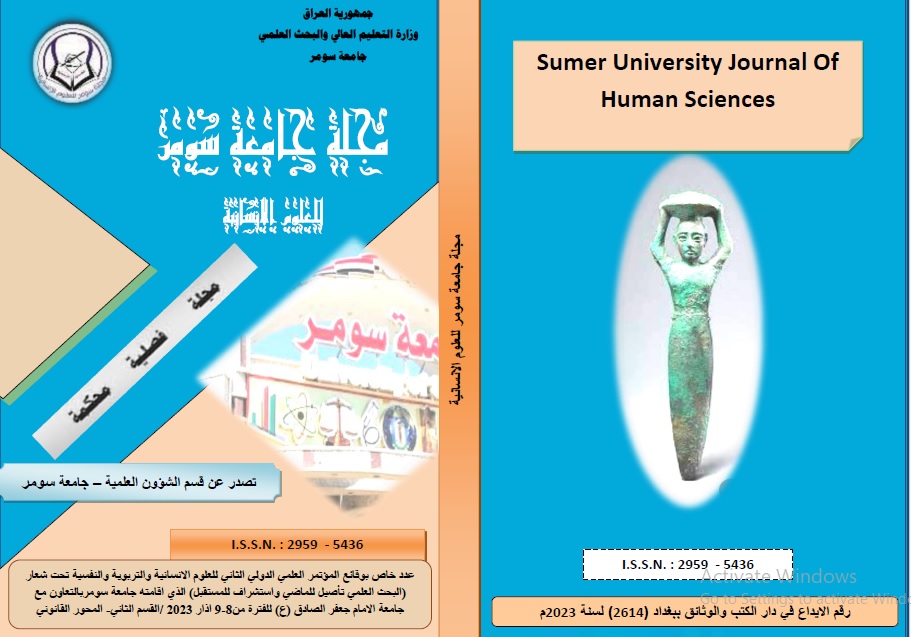The legal system for the pleading session
Abstract
When a person has the right of a usurper, he has no way but to resort to the judicial authority to obtain his right, so he files the lawsuit in accordance with the procedures stipulated by law for the occurrence of a breach of the performance of that right, he requests his right from the other before the judiciary, and in this way we ensure that this person does not resort to a method that contradicts the controls and foundations of life in his behavior and ways to obtain his right, and resort to the court to prove those rights in accordance with the law.
The lawsuit that is filed before the judiciary is a basic and important means aimed at achieving judicial protection, and this protection is not decided by the judiciary unless it investigates the facts presented in the lawsuit to make sure of the eligibility of the applicant for protection in it, and as we know that the civil lawsuit is the reason for its establishment due to the presence of the damage caused to the individual and the civil lawsuit aims to obtain compensation and therefore the civil lawsuit is the property of the plaintiff.
At the beginning of the pleading, the plaintiff stands before the court on the right and the defendant on the left, then the judge examines the formal issues in the pending case, and verifies that the lawsuit has not been previously adjudicated by a decision of a court ruling, because the judgments issued by the courts that have acquired the degree of bits are an argument for the rights they have adjudicated if the parties to the lawsuit are united and their characteristics have not changed and are attached to the same right in place and reason, unless there is a change in its subject matter, reason or opponents, and that the lawsuit was filed During the legal periods stipulated in the Civil Code, and that there is no agreement on arbitration between the litigants, as the lawsuit may not be considered until after it is referred to arbitration, and the judge verifies that there was no reconciliation between the parties to the lawsuit before pleading.
This research deals with (the legal system of the pleading session) in the Iraqi Civil Procedure Law No. (83) of 1969 as amended and the Egyptian Civil and Commercial Procedures Law No. (13) of 1968.
The importance of this research stems from an attempt to create an integrated theory of a procedural nature through which the system of the pleading session can be highlighted, and the development of reality from the perspective of evolution being an end-to-end goal.
To achieve the objectives of this research, the researcher adopted the comparative analytical method. The problem of research is the legal system of the hearing and the cases that occur in its course. This research was divided into two sections, where the first section dealt with the system of pleading session, through three demands. The second section dealt with cases that occur on the conduct of the pleading session, in four demands.
The researcher reached a number of conclusions and recommendations, the most important of which was the procedures taken by the parties after the court's decision to stop or interrupt the pleading, which will be invalid. The waiver or annulment of the lawsuit petition does not prevent the right holder from filing a new lawsuit.
One of the most important recommendations is that we urge the legislator to extend the period of suspension to six months instead of three months, and we also urge him to adopt the concept of stopping the lawsuit because it is a comprehensive expression that accommodates all cases of suspension and interruption of the civil lawsuit as long as the effects of them are the same.


